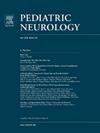向恋人透露结节性硬化症诊断的影响因素
IF 2.1
3区 医学
Q2 CLINICAL NEUROLOGY
引用次数: 0
摘要
背景:结节性硬化症(TSC)是一种以多器官肿瘤易感性为特征的遗传性疾病。由于病情的可变性、遗传性和严重性,患有TSC的个体在恋爱关系中可能面临心理社会挑战,包括向恋人透露他们的诊断。尽管正在探索其他遗传条件的披露,但这一领域尚未在TSC社区进行探索,该社区在总体健康和生活质量方面面临独特的挑战。方法对患有TSC的独立成人进行人口统计学调查,调查内容包括:TSC的人口学特征、披露与不披露因素、人际关系与披露经历、TSC特征以及短暂疾病感知问卷得分。该研究旨在确定诊断披露的模式,并评估决定何时或是否披露的因素,以增加临床医生和社区之间的理解,以提供更好的支持。结果随着关系数量的增加,向所有伴侣披露的概率(P <;0.001),披露时间减少(P = 0.007)。道德义务是最普遍认同的披露因素(81%),而害怕被拒绝是最普遍认同的不披露因素(69%)。总体而言,81%的参与者认为信息披露具有挑战性,64%的人认为TSC会影响他们的约会欲望,而70%的人认为TSC是约会的障碍。结论:这些发现强调了在恋爱关系中对TSC患者进行交流和心理社会支持的必要性。这些资源可能会增加支持,对疾病管理产生积极影响,并改善TSC社区的生活质量。本文章由计算机程序翻译,如有差异,请以英文原文为准。
Influential Factors for Disclosing a Tuberous Sclerosis Complex Diagnosis to Romantic Partners
Background
Tuberous sclerosis complex (TSC) is a genetic condition characterized by multiorgan tumor predisposition. Owing to the variability, heritability, and severity of the condition, individuals with TSC may face psychosocial challenges within romantic relationships including disclosing their diagnosis to romantic partners. Despite disclosure being explored in other genetic conditions, this area has not yet been explored in the TSC community, which faces unique challenges in overall health and quality of life.
Methods
This study surveyed independent adults with TSC regarding demographics, disclosure and nondisclosure factors, relationship and disclosure experiences, TSC features, and Brief-Illness Perception Questionnaire scores. The study aimed to identify patterns of diagnosis disclosure and assess factors considered in deciding when or whether to disclose, to increase understanding among clinicians and the community to provide better support.
Results
As the number of relationships increased, both the probability of disclosure to all partners (P < 0.001) and the amount of time to disclose decreased (P = 0.007). Ethical obligation was the most heavily agreed-upon disclosure factor (81%), whereas fear of rejection was the most heavily agreed-upon nondisclosure factor (69%). Overall, 81% of participants considered disclosure to be challenging, 64% considered TSC to affect their desire to date, while 70% considered TSC to be a barrier to dating.
Conclusions
These findings highlight a need for facilitated discussion and psychosocial support for individuals with TSC in the realm of disclosure within romantic relationships. Such resources may increase support, positively impact disease management, and improve quality of life for the TSC community.
求助全文
通过发布文献求助,成功后即可免费获取论文全文。
去求助
来源期刊

Pediatric neurology
医学-临床神经学
CiteScore
4.80
自引率
2.60%
发文量
176
审稿时长
78 days
期刊介绍:
Pediatric Neurology publishes timely peer-reviewed clinical and research articles covering all aspects of the developing nervous system.
Pediatric Neurology features up-to-the-minute publication of the latest advances in the diagnosis, management, and treatment of pediatric neurologic disorders. The journal''s editor, E. Steve Roach, in conjunction with the team of Associate Editors, heads an internationally recognized editorial board, ensuring the most authoritative and extensive coverage of the field. Among the topics covered are: epilepsy, mitochondrial diseases, congenital malformations, chromosomopathies, peripheral neuropathies, perinatal and childhood stroke, cerebral palsy, as well as other diseases affecting the developing nervous system.
 求助内容:
求助内容: 应助结果提醒方式:
应助结果提醒方式:


